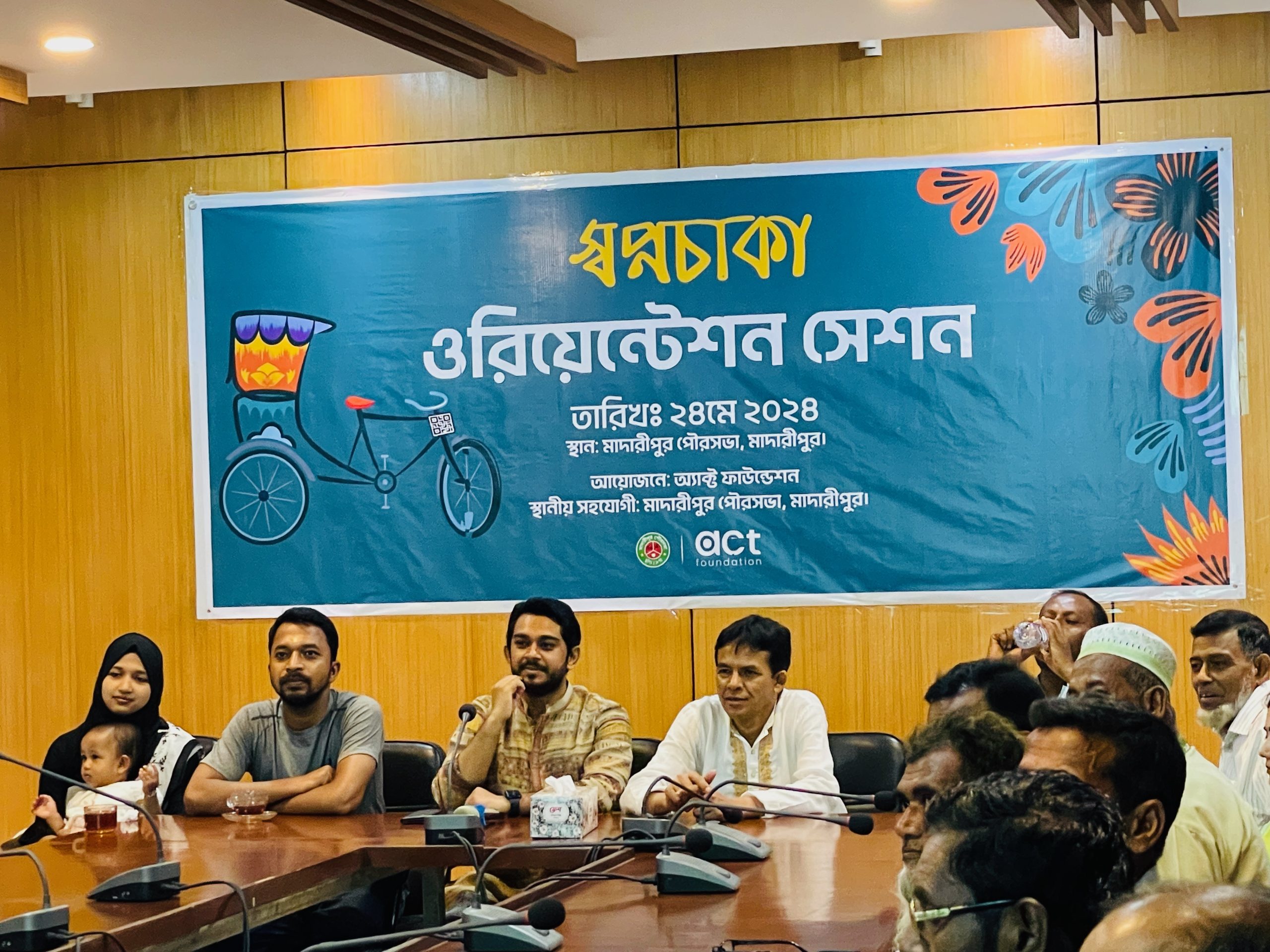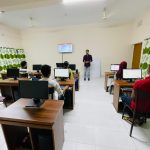Photo : Shawpno Chaka orientation program
Since its establishment in 2020, Actions Contributing to Transformation (ACT) Foundation has been dedicated to transforming marginalized communities through sustainable development initiatives. By aligning its core projects with the United Nations’ Sustainable Development Goals (SDGs), ACT Foundation is addressing the urgent needs of society, focusing on digital inclusion, education, economic empowerment, and gender equality. Through its flagship projects, Rupantor ICT Lab and Shwapnochaka, the foundation is actively contributing to several SDGs, driving positive change and fostering community growth.

SDG 1: No Poverty
ACT Foundation tackles poverty by providing income-generating opportunities to marginalized individuals through its Shwapno Chaka project. The initiative distributes electric rickshaws to low-income families, enabling them to generate a sustainable income. Beneficiaries are also encouraged to save a portion of their daily earnings, fostering long-term financial security. This initiative not only improves individual livelihoods but also strengthens the economic foundation of entire communities.
Key Impact: Shwapnochaka beneficiaries earn around 900–1000 BDT daily, with savings contributions supporting future beneficiaries. This cycle ensures a sustainable livelihood for many underprivileged families.

SDG 4: Quality Education
Rupantor ICT Lab is designed to provide quality education and enhance digital skills among the youth in Madaripur. By offering courses in Basic Computing, Graphic Design, English Speaking, and AutoCAD, the lab equips students with the tools needed to thrive in today’s job market. The lab has trained over 1,200 students, with several securing internships and full-time jobs upon course completion.
Key Impact: The courses, offered free of charge, ensure that financial constraints do not limit access to education. Students are empowered with skills that directly improve their employability and future opportunities.

SDG 5: Gender Equality
Promoting gender equality is a core element of ACT Foundation’s mission. Both Rupantor ICT Lab and Shwapnochaka actively encourage the participation of women. The ICT Lab offers a supportive learning environment, increasing female enrollment and helping women break barriers in traditionally male-dominated fields like computing and design. Meanwhile, Shwapnochaka contributes by supporting families where women benefit indirectly through improved family income, stability, and access to financial services.
Key Impact: Increased female participation in both educational and economic initiatives, promoting gender inclusivity and empowering women in rural communities.

SDG 8: Decent Work and Economic Growth
ACT Foundation is committed to fostering economic growth by creating employment opportunities. The Shwapnochaka project not only provides a sustainable income source through electric rickshaws but also promotes savings and financial literacy, contributing to long-term economic empowerment. Additionally, Rupantor ICT Lab connects students with internship and job opportunities, ensuring that graduates are well-prepared for the workforce.
Key Impact: Both initiatives promote decent work, equipping participants with the skills and resources to contribute meaningfully to their communities and the economy.

SDG 10: Reduced Inequalities
The foundation aims to reduce inequalities by offering access to education and employment opportunities, regardless of socio-economic status. The Shwapnochaka project is an excellent example of reducing financial inequality, providing previously unemployed or underemployed individuals with the means to generate consistent income. Rupantor ICT Lab offers skills development to all students free of charge, ensuring inclusivity in educational access.
Key Impact: ACT Foundation bridges the gap between opportunity and marginalized communities, ensuring that everyone, including women and disadvantaged youth, can participate in social and economic development.
SDG 17: Partnerships for the Goals
ACT Foundation’s success relies on its partnerships with Sanabil Foundation and Madaripur Municipality. These collaborations align with SDG 17, which emphasizes the importance of partnerships for achieving sustainable development goals. Sanabil Foundation provides financial backing, while Madaripur Municipality offers logistical and strategic support.
Key Impact: These partnerships enable ACT Foundation to expand its projects and continue creating meaningful change in the communities it serves.
By aligning its work with the SDGs, ACT Foundation ensures that its initiatives not only address immediate community needs but also contribute to broader global goals. Projects like Rupantor ICT Lab and Shwapnochaka demonstrate how targeted interventions can empower individuals, reduce inequalities, and foster sustainable development. Through these efforts, ACT Foundation is helping to build a future where opportunity, equality, and prosperity are accessible to all.





